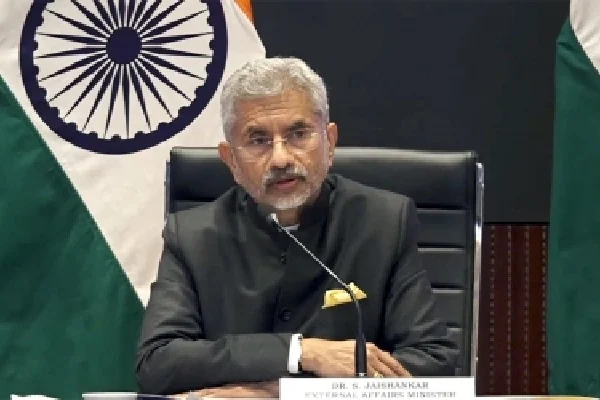External Affairs Minister Dr S Jaishankar and his Chinese counterpart Wang Yi engaged in a brief yet significant interaction on the sidelines of the Munich Security Conference, adding intrigue to the diplomatic atmosphere. This impromptu encounter occurred as Wang was descending the podium while Jaishankar was ascending for a panel discussion with US Secretary of State Antony Blinken and German Foreign Minister. The two foreign ministers were observed engaging in an animated conversation, marking a notable moment after months of minimal high-level communication between India and China since the Galwan crisis. Their last meeting had taken place in Indonesia on the sidelines of the ASEAN meet in July 2023.
The Munich Security Conference (MSC) 2024 commenced on February 16 in Munich, Germany, and will conclude on Sunday. Held at the Hotel Bayerischer Hof, the event serves as a platform for global leaders to discuss pressing security issues and diplomatic matters. Jaishankar utilized this opportunity to hold meetings with various international counterparts, including former US Secretary of State Mike Pompeo. Their discussion encompassed contemporary political developments, as indicated by Jaishankar’s post on social media platform X, where he highlighted the valuable exchange of views with Pompeo.
Additionally, Jaishankar met with Jens Plotner, the German Foreign and Security Policy Advisor, to discuss strategic insights and assessments. Expressing gratitude for the meeting, Jaishankar recognized Plotner’s contributions to diplomatic discourse. Furthermore, Jaishankar engaged with Friedrich Merz, the chairman of Germany’s Christian Democratic Union (CDU) party, acknowledging Merz’s staunch support for India’s relations with Germany and the European Union. Besides these meetings, Jaishankar also interacted with counterparts from Norway, Poland, Belgium, and Portugal, underscoring India’s commitment to fostering bilateral ties and multilateral cooperation.
During a panel discussion at the Munich Security Conference, Jaishankar addressed the Israel-Palestine conflict, emphasizing the need for a “permanent fix” to the longstanding issue. He unequivocally condemned the Hamas attack on Israel on October 7, categorizing it as an act of terrorism. However, Jaishankar also urged Israel to exercise restraint and adhere to international humanitarian law to minimize civilian casualties in its response. Sitting alongside Antony Blinken and German Foreign Minister Annalena Baerbock, Jaishankar emphasized the multifaceted nature of the conflict and advocated for a comprehensive approach towards achieving a sustainable resolution.
The interaction between Jaishankar and Wang Yi at the Munich Security Conference holds significant diplomatic implications amid strained relations between India and China. The Galwan Valley clash in June 2020, which resulted in casualties on both sides, exacerbated tensions between the two Asian giants. Since then, diplomatic channels have witnessed minimal engagement, with sporadic interactions at multilateral forums offering limited opportunities for dialogue. Against this backdrop, the impromptu meeting between Jaishankar and Wang Yi signifies a potential thaw in relations and a willingness to engage in constructive dialogue to address bilateral issues and regional concerns.
The Munich Security Conference serves as a critical platform for global leaders to address pressing security challenges and explore avenues for cooperation. Against the backdrop of evolving geopolitical dynamics and regional security threats, the interactions between key stakeholders assume heightened significance. The encounter between Jaishankar and Wang Yi underscores the importance of diplomatic engagement and dialogue in managing bilateral relations and promoting regional stability.
As India navigates its foreign policy priorities and seeks to strengthen its strategic partnerships, engagements at international forums like the Munich Security Conference offer valuable opportunities to articulate its stance on global issues and foster closer cooperation with like-minded countries. The interaction between Jaishankar and Wang Yi reflects the complexities of India-China relations and the imperative of maintaining open channels of communication to manage differences and promote mutual understanding.
The impromptu interaction between External Affairs Minister Dr S Jaishankar and his Chinese counterpart Wang Yi at the Munich Security Conference marks a significant diplomatic development amid strained relations between India and China. Against the backdrop of escalating tensions and limited high-level engagement, this encounter offers hope for renewed dialogue and cooperation to address bilateral issues and regional challenges. As both countries navigate complex geopolitical dynamics, constructive engagement and diplomatic dialogue remain essential to managing differences and advancing shared interests.














